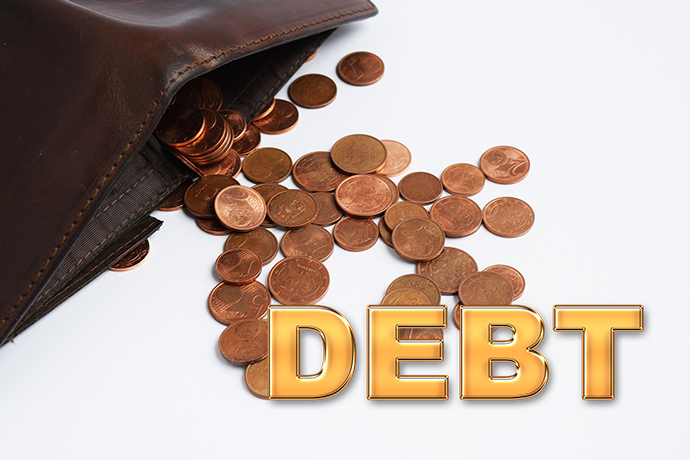In today’s turbulent economy, living with debt is a way of life for many. When you think about it, it really shouldn’t come as a surprise. Being able to charge it when you’re short on cash to personal or student loans, the situation might even seem unavoidable. However, even the most hopeless of financial situations can usually be turned around. All it takes is patience and a desire to be debt-free.
Track your spending
One of the first things you need to do is track your spending daily. In addition to studying within your budget, you also need to identify poor spending habits. With your budget in hand, look to see if you’ve inadvertently been overspending. If you swore you would only splurge on eating out once a month but decided to throw caution to the wind and brunch with friends three times this month, you need to buckle down. Unless you already have that extra money coming to cover what you want to spend, you need to stay within your budget. Not staying on track cause have a rippling effect on your finances.
Refinance loans
Unless you’re one of the chosen few, you probably have student loan debt. In fact, you might find yourself feeling like you’re drowning in debt, simply because you can’t make any headway. While the process can be demotivating, there are things you can do to turn thugs around. If paying more each month is out of question, you could refinance your student loans. Refinancing is one of the best ways to save while paying off your debt. The best part is you may have a lower interest rate and lower monthly payments as well. But since there are a lot of moving parts to refinancing your loans, you might want to review a guide that breaks down the process. From there, you can decide if refinancing your loans is the right thing to do.
Give budget an overhaul
Even if your budget worker before, it might not be working now. This is even more true if you’ve had a change in income. But since the right budget can help you get ahead of your finances, it’s a good idea to revisit it and even rework if you need to. Create a list of your expenses, the money you want to save each month, and the money you want to spend on yourself. See if the figures line up against each other. If you discover that you’re spending more than you’re earning, it’s time to rework your budget.
Down the road you’ll need to focus on sustainable investing and your future goals, but in the immediate future your budget should get the bulk of your attention. Some of the easiest ways to save is by cutting out unnecessary expenses. These can include buying pre-made meals or pre-cut fruit and vegetables at the store, ordering takeout instead of cooking at home and paying for subscription services you never use. You can also contact your insurance providers and ask if they’re offering discounts for bundling multiple types of coverage. Most insurance companies will, so even if it’s only 10 to 15%, it’s still better than nothing. Look for additional ways to save money by only buying what’s on sale, carpooling, and walking whenever possible.
Use your credit cards wisely
Using credit when you don’t have cash is a great way to build a positive credit history. However, if you find yourself reaching your cards more than not, you might want to scale back. What’s more is that if your cards carry a high interest rate, you could be digging yourself into a deeper financial hole. When you do use your cards, try to pay off the entire balance each month. That way, you’ll avoid having the interest creep up on you, and you’ll also be boosting your credit score. You may even qualify for a higher credit limit.
Stop impulse buying
If you’re looking to save money fast, stop making impulse purchases. As tempting as it is to buy anything you want, it can have disastrous effects. It can cause you to miss loan or credit card payments because you don’t have the money. It can also cause you to overdraw your bank account or max out your cards. The next time you find yourself wanting to buy something, ask yourself if you really need it, or if it’s just something you want.
If it’s not really a necessity, take at least a week to mull things over and see if you feel the same. If the answer is yes, the next step is to determine if you can really afford it. If not, then you might need to hold off until you genuinely can. You’ll feel a lot happier when you do finally buy it without going broke. You’ll also learn how to have patience and might even find ways to earn passive income, so you can spend more without feeling guilty.

